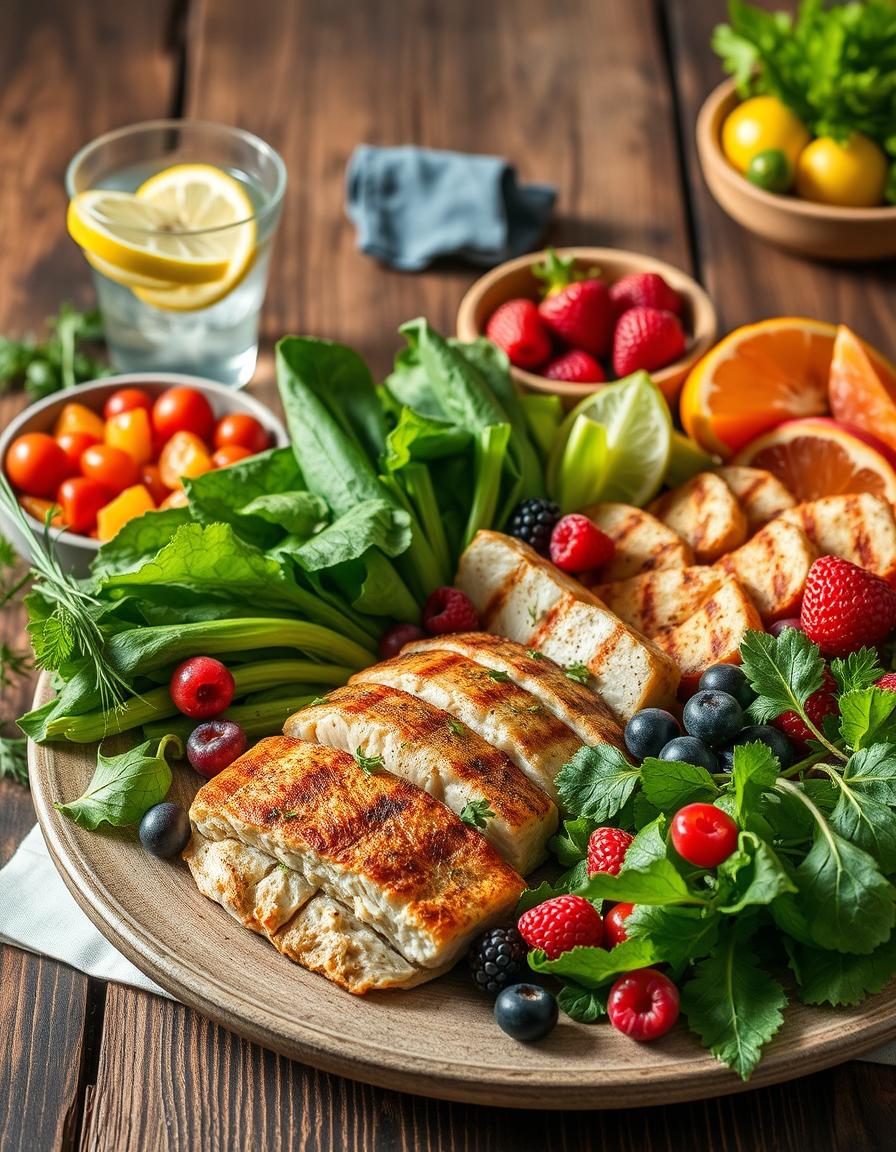Keeping your kidneys healthy is a smart move for anyone wanting to feel energetic and maintain overall wellness. These small but mighty organs work hard to filter waste, balance fluids, and regulate blood pressure. Eating right plays a huge role in supporting kidney function and preventing damage. If you’re curious about how to fuel your body with kidney-friendly foods, lean kidney health nutrition tips can guide you toward better balance and vitality.
Understanding Kidney Health
Your kidneys act like nature’s own filter system, removing toxins and extra fluids from your blood to form urine. They also help control blood pressure, produce hormones that boost red blood cell production, and maintain healthy bones by balancing minerals. When kidneys aren’t cared for properly, problems like chronic kidney disease or kidney stones can develop, which can impact overall health significantly.
Eating habits influence kidney performance more than many people realize. The right foods can support filtering functions, reduce inflammation, and avoid common risks like high blood pressure or diabetes, which are major contributors to kidney problems.
Key Nutrients for Kidney Support
Focusing on lean kidney health nutrition tips means choosing foods that protect and nourish your kidneys without overloading them. Here are some important nutrients you want to include:
- Low Sodium: Reducing salt intake helps control blood pressure and prevents fluid retention.
- Potassium: This mineral helps balance fluids, but too much or too little can stress kidneys.
- Phosphorus: Essential for bones but excessive amounts may harm kidneys if not regulated.
- Protein: Necessary for body repair, but excessive animal protein can increase kidney workload.
- Antioxidants: Found in fruits and vegetables, they fight oxidative stress and inflammation.
Balancing Protein Intake
Protein fuels your muscles and organs, but too much can exhaust your kidneys, especially if you have existing issues. Opt for lean protein sources such as skinless chicken, turkey, fish, and plant-based proteins like beans and lentils. Many find plant proteins easier on the kidneys and beneficial for heart health too.
Here’s a quick comparison table to help choose the best proteins:
| Protein Source | Pros | Cons |
|---|---|---|
| Chicken breast (skinless) | Low fat, high quality protein | Can be costly |
| Salmon | Rich in omega-3 fatty acids | May contain mercury if eaten excessively |
| Legumes (beans, lentils) | High in fiber and plant protein | May cause gas or bloating for some |
| Red meat (beef, pork) | Rich in protein and iron | Higher in saturated fat, harder on kidneys |
Watch Your Salt and Fluid Intake
Too much salt can turn your kidneys into overdrive, causing high blood pressure and swelling. Limit processed foods, canned soups, and fast food, which often sneak in high sodium amounts. Instead, use herbs, lemon, or spices for flavor.
Fluid intake is a balancing act. Drinking enough water helps kidneys flush waste, but overhydration or drinking sugary, caffeinated beverages can cause issues. Generally, drinking plain water throughout the day works best.
Foods to Embrace for Lean Kidney Health Nutrition Tips
Here are some tasty and kidney-friendly food choices that support balanced nutrition:
- Red Bell Peppers: Low in potassium and packed with vitamins A, C, and B6.
- Cauliflower: Contains antioxidants, fiber, and is a good source of vitamin C.
- Garlic: Natural anti-inflammatory with a savory punch.
- Apples: High in fiber and anti-inflammatory compounds.
- Blueberries: Rich in antioxidants and low in potassium.
- Cabbage: Contains phytochemicals to help break down free radicals.
These foods not only boost kidney function but add color and variety to your meals. Remember, a colorful plate is often a healthy plate.
Foods to Limit or Avoid
Certain foods can strain your kidneys or worsen existing conditions. Here’s a simple list to keep on your radar:
- Processed meats such as sausages and deli slices
- Salted snacks and fast food
- High-phosphorus dairy products like cheese and whole milk
- Dark colas and sugary sodas
- Excessive red meat or fatty cuts
Keeping an Eye on Potassium and Phosphorus
People with kidney concerns often need to manage potassium and phosphorus carefully. Too much can lead to muscle weakness or bone problems. If unsure about your levels, it’s important to consult a healthcare provider before making drastic diet changes.
Practical Meal Ideas
Wondering how to put these lean kidney health nutrition tips into action? Here are some simple ideas.
- Breakfast: Oatmeal topped with fresh blueberries and a sprinkle of cinnamon.
- Lunch: Grilled chicken salad with mixed greens, red bell peppers, and a lemon vinaigrette.
- Dinner: Baked salmon with roasted cauliflower and steamed cabbage.
- Snacks: Apple slices with almond butter or a small handful of unsalted nuts.
Planning meals like these keeps your diet interesting and kidney-friendly without feeling restrictive.
The Role of Exercise and Lifestyle
Nutrition is just one piece of the puzzle. Physical activity can improve blood flow and help keep kidneys working well. If you’re curious about integrating fitness with your health goals, the Rocky Mountain Flex program offers helpful resources on strength and conditioning that match well with nutrition plans focused on kidney health.
Maintaining a healthy weight, avoiding smoking, and getting regular check-ups also play important roles in preserving kidney function over time.
Conclusion
Following lean kidney health nutrition tips can make a huge difference in how your kidneys perform and how you feel day to day. Focusing on balanced protein, reduced salt, and plenty of fresh fruits and veggies supports your kidneys without overloading them. Combined with exercise and a healthy lifestyle, these habits help keep your kidneys filtering smoothly for years to come. Remember, small changes add up — and your kidneys will thank you for the care you put in now.

Hardik is the visionary founder and driving force behind Leanry.com, a platform committed to empowering individuals through reliable health information, wellness tips, and actionable content for a healthier lifestyle.

